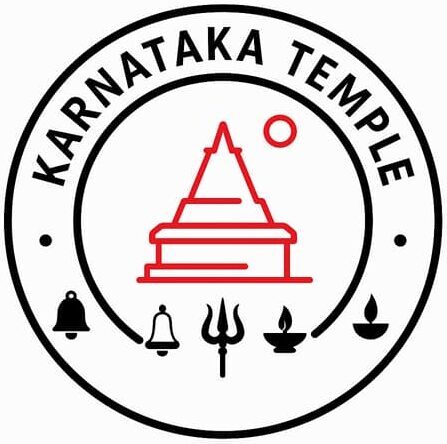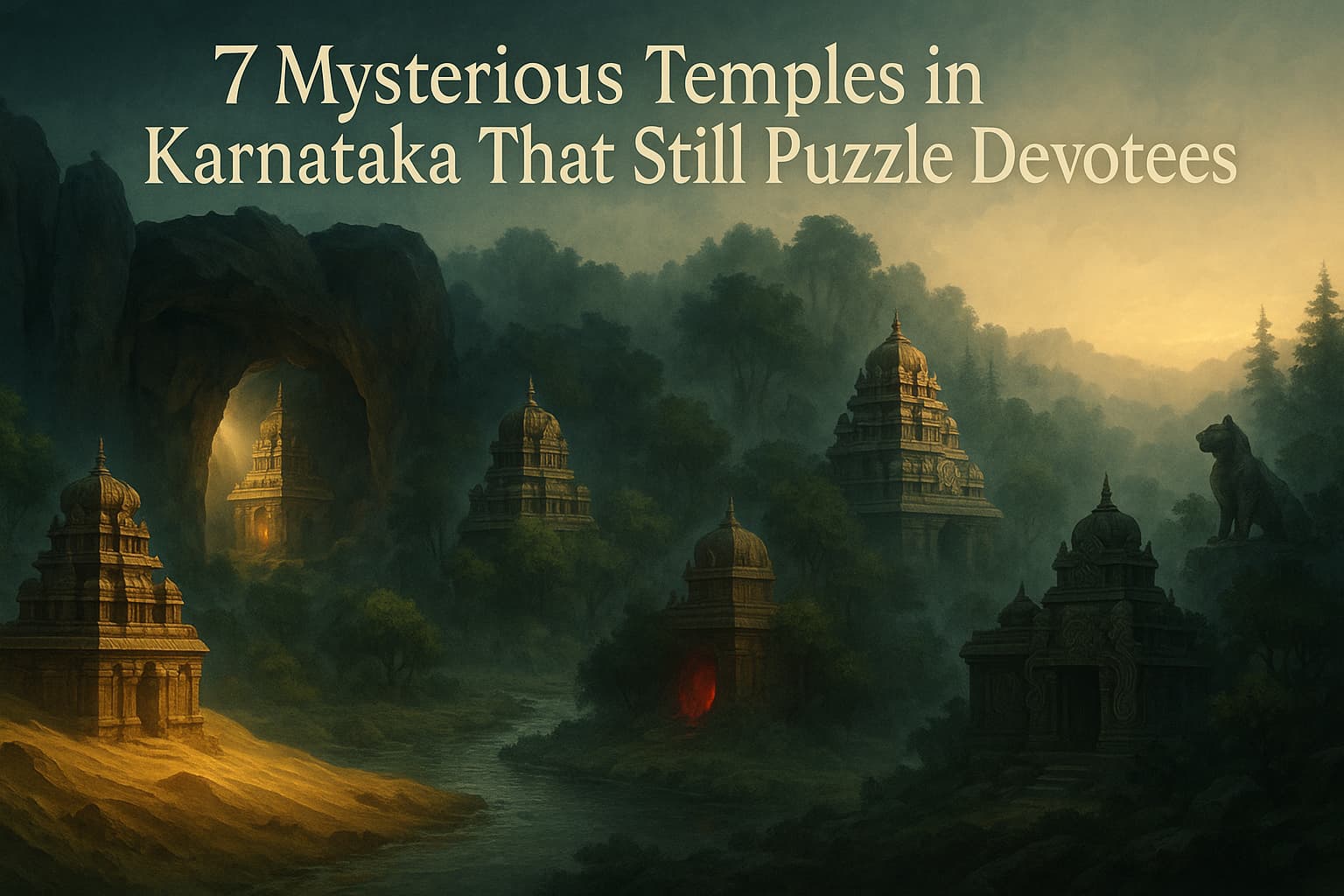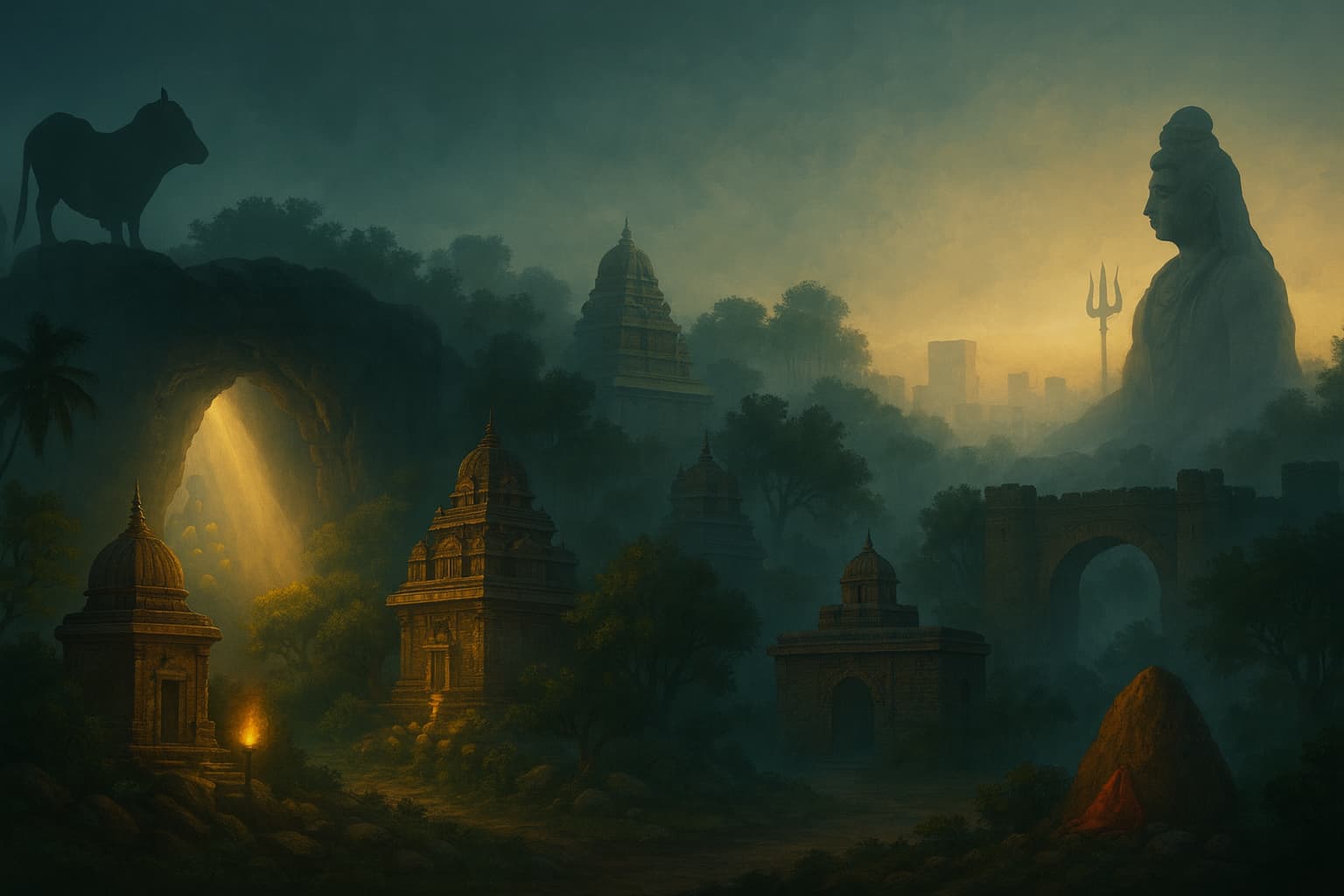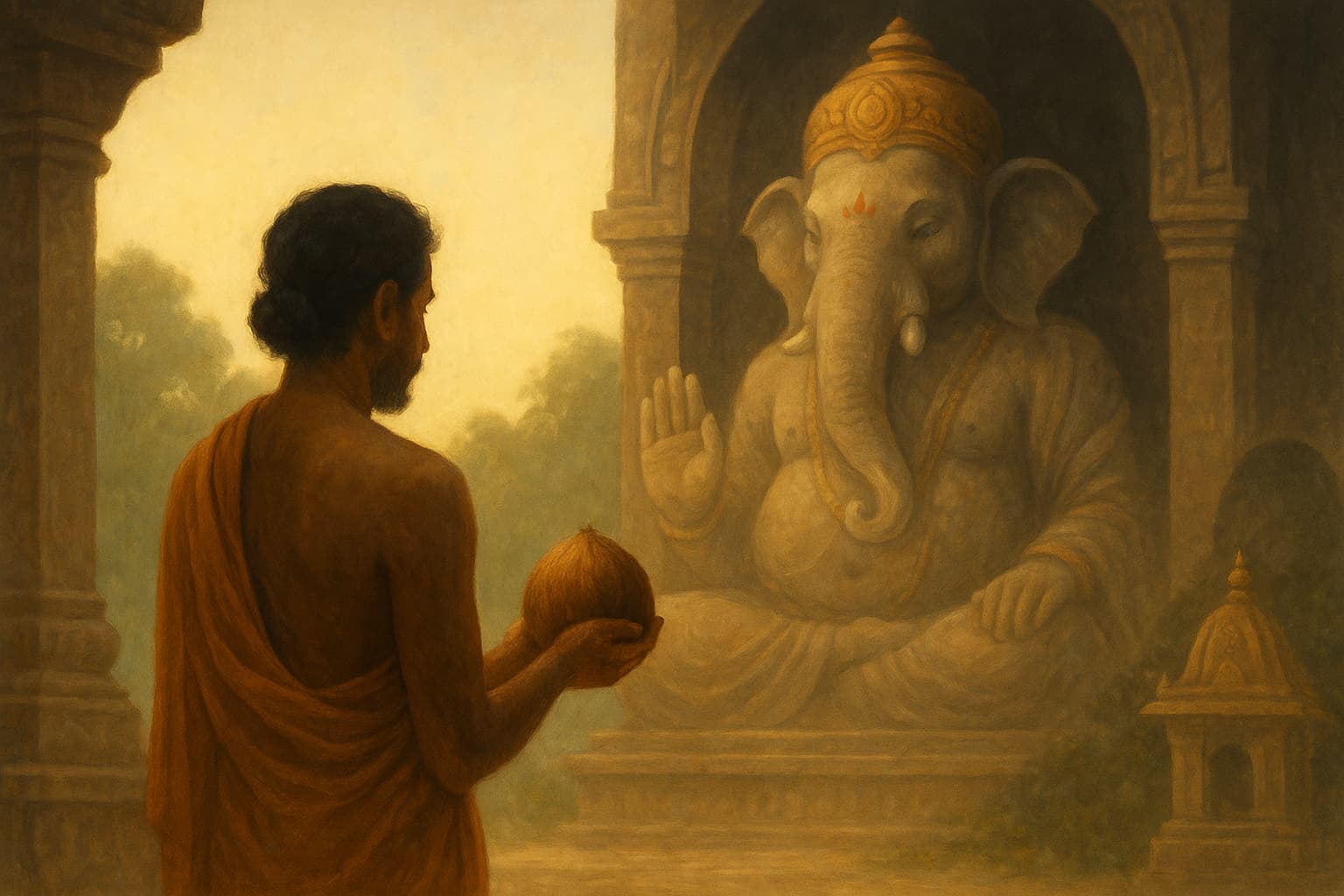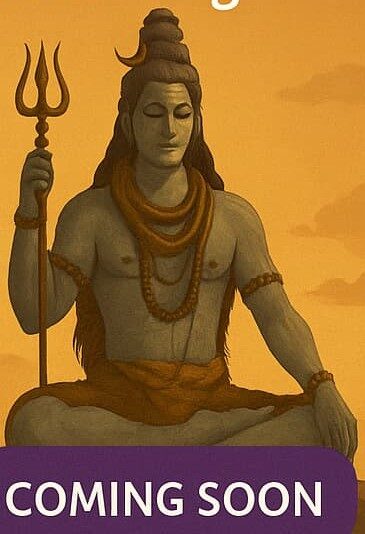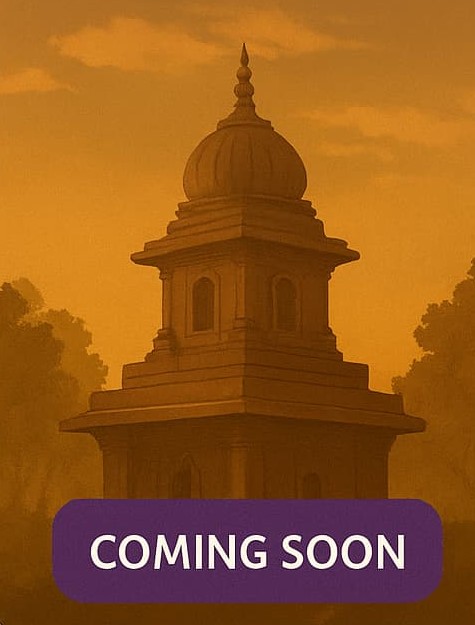📖 Hindu Mythology & Beliefs
Hindu mythology is more than just a collection of ancient tales—it’s a spiritual lens through which millions understand the universe, karma, dharma, and divine presence.
These sacred stories explain the cosmic roles of gods and goddesses, describe the origins of the world, and guide devotees on the path of righteousness. Whether it’s the fierce energy of Goddess Durga or the playful wisdom of Lord Krishna, every myth carries deep meaning and moral lessons.
In Karnataka’s temples, these myths come alive through rituals, architecture, festivals, and sacred symbols. This section explores the legends that have shaped South India’s spiritual landscape for centuries.
🪨 The Stories Behind the Stones
Hindu mythology is not just preserved in scriptures — it’s carved into the stones of temples across Karnataka. Each sculpture, pillar, and shrine tells a sacred story from epics like the Ramayana, Mahabharata, and the Puranas. You’ll find Lord Shiva in deep meditation, Vishnu rescuing the earth as Varaha, or Durga slaying Mahishasura — all sculpted into the walls of temple mandapas and gopurams.
Temple architecture becomes a divine canvas, where gods, demons, sages, and cosmic events come alive. Rituals like abhisheka (sacred bathing) or deepotsava (lamp offering) are physical enactments of these mythological stories, connecting devotees to the divine past through sacred experience.
Below is a helpful reference table to understand how mythology, symbols, and temples are interlinked across Karnataka’s spiritual landscape.
| Deity | Associated Mythology | Key Symbols | Temple Examples (in Karnataka) |
|---|---|---|---|
| Shiva | Samudra Manthan, Linga Purana | Trishula, Snake, Damaru | Murudeshwar, Gokarna |
| Vishnu | Dasavatara (10 Avatars) | Chakra, Shankha (Conch) | Melukote, Srirangapatna |
| Devi | Durga’s victory over Mahishasura | Lion, Lotus | Kollur, Chamundi Hills |
🔮 More Mythology Articles Coming Soon
✍️ These stories will soon be added to deepen your understanding of temple myths and divine traditions.
🙏 Which Temple Myth Inspires You the Most?
❓ Frequently Asked Questions – Hindu Temple Mythology
Q. Are the stories behind temples real or symbolic?
While many temple myths are rooted in sacred texts, they often carry deep symbolic meanings rather than literal history. They guide moral values, devotion, and spiritual insight.
Q. Why do temples in Karnataka have unique mythological links?
Karnataka is home to diverse traditions — from Shaivism to Vaishnavism — with temples tied to local legends, avatars, and epics like Ramayana and Mahabharata.
Q. How are myths connected to temple architecture?
Temple sculptures often depict scenes from Puranas, like the Samudra Manthan or Narasimha Avatar. Even the layout of temples reflects cosmic stories and energies.
Q. Is there a difference between North and South Indian temple myths?
Yes, while both share core beliefs, southern temple myths often focus on local deities, regional saints (like Basavanna), and unique events tied to Kannada folklore.
